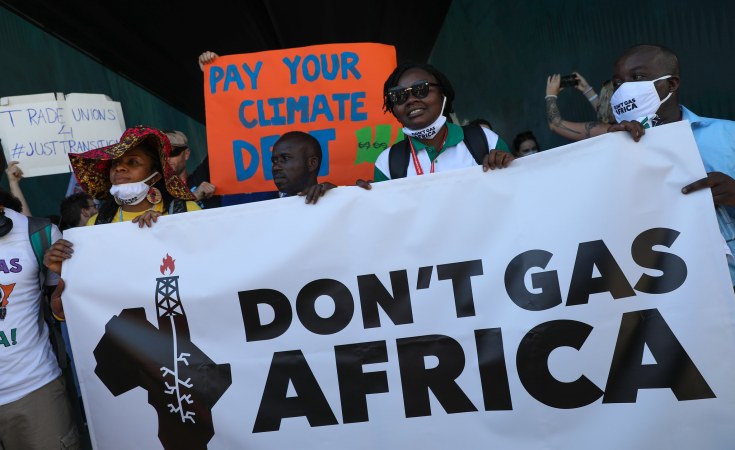Harare — On Gender Day African Development Bank Rallies Global Support for Women to Build Climate Resilience
A panel discussion honouring "Gender Day" at the 27th United Nations Climate Change Conference (COP27) in Egypt featured former Irish president Mary Robinson as its moderator. She demanded the creation of a special climate fund to assist grassroots women in addressing climate change and fostering resilience. The workshop on Gender Sensitive and Climate Just Finance Mechanisms, which took place during COP27 in Sharm El Sheikh, was organised by the African Development Bank. The panellists agreed that facilities designed to benefit women, who are enhancing climate resilience, must be obvious, uncomplicated, and straightforward to use.
In order to emphasise the achievements, difficulties, and problems related to gender equality and climate change, the African Development Bank organised additional side events to commemorate Gender Day during the COP27. Among these was the introduction of the Gender in Climate Action Accelerator, a tool to assist private sector businesses in enhancing the gender responsiveness of their corporate climate governance.
Talks at COP27 Enter Final Stretch - But Draft COP7 Agreement Fails to Call For 'Phase-Down' of All Fossil Fuels
Government ministers and negotiators from over 200 countries are scrambling to reach an agreement on a range of issues crucial to addressing the climate emergency as negotiations at the COP27 climate summit enter their last stages. On, November 17, the UN climate agency released a 20-page preliminary version of the potential final deal. It is very likely that it will be revised in the coming days as climate envoys attempt to establish a comprehensive agreement before the deadline. The so-called "non-paper" reiterates many of the Glasgow Climate Pact's objectives, such as pursuing attempts to keep the increase in global temperature to 1.5 degrees Celsius and advocating for continued efforts to phase out coal power unabatedly. However, unlike what India and the European Union had sought, it does not advocate for the gradual phasing out of all fossil fuels.
The U.N. statement stated that it "welcomes" the decision to put "loss and damage" payments on the agenda for the first time, but it omitted information on how to set up a loss and damage funding facility, a contentious and sensitive topic that is considered as a key problem of climate justice.
'The Horn of Africa Is Paying the Price for the World's Selfishness'
The consequences of climate change are undeniable, since they are already impacting the livelihoods of millions of people in Africa, particularly the poorest and most vulnerable. The consequences of climate change are catastrophic in the Horn of Africa, despite the fact that the region contributes the least to the global climate disaster, accounting for an estimated 0.59% of worldwide greenhouse gas emissions, and yet it bears the brunt of global warming. This crisis is being driven by the longest and the most severe drought in recent history that is expected to continue well into 2023, says Thomson Reuters Foundation's Megan Rowling. "The last famine in 2011, killed 260,000 people. And it is absolutely imperative that something is done to prevent a similar situation from occurring again 11 years later, says Rowling.
According to the UNFCCC, "it is imperative that the world focuses on saving lives now. Urgent funding is needed to mount an integrated (WASH, Health, Food, and Nutrition) response in Ethiopia, Kenya, and Somalia. If this does not happen, we are faced with catastrophic consequences.


